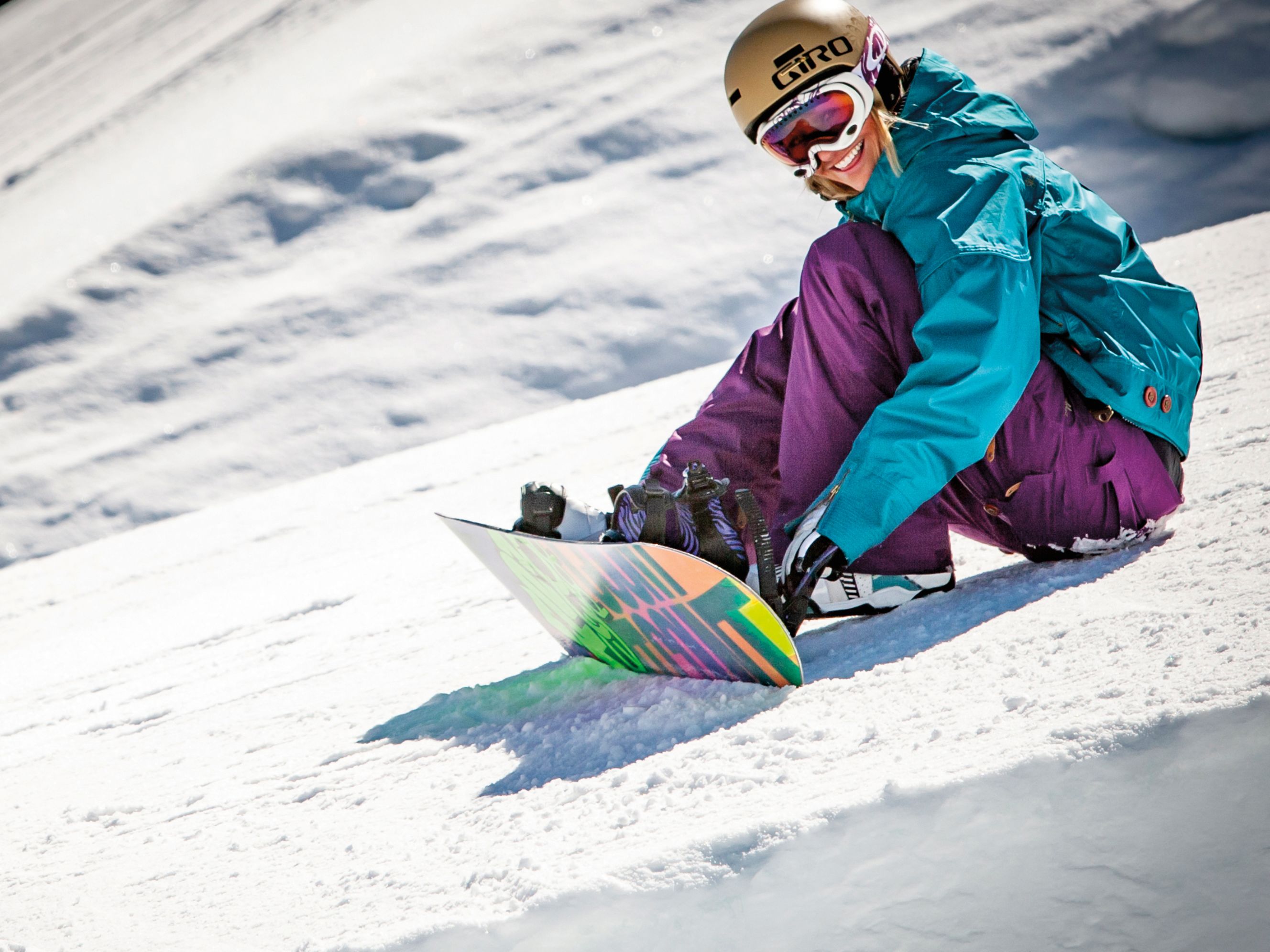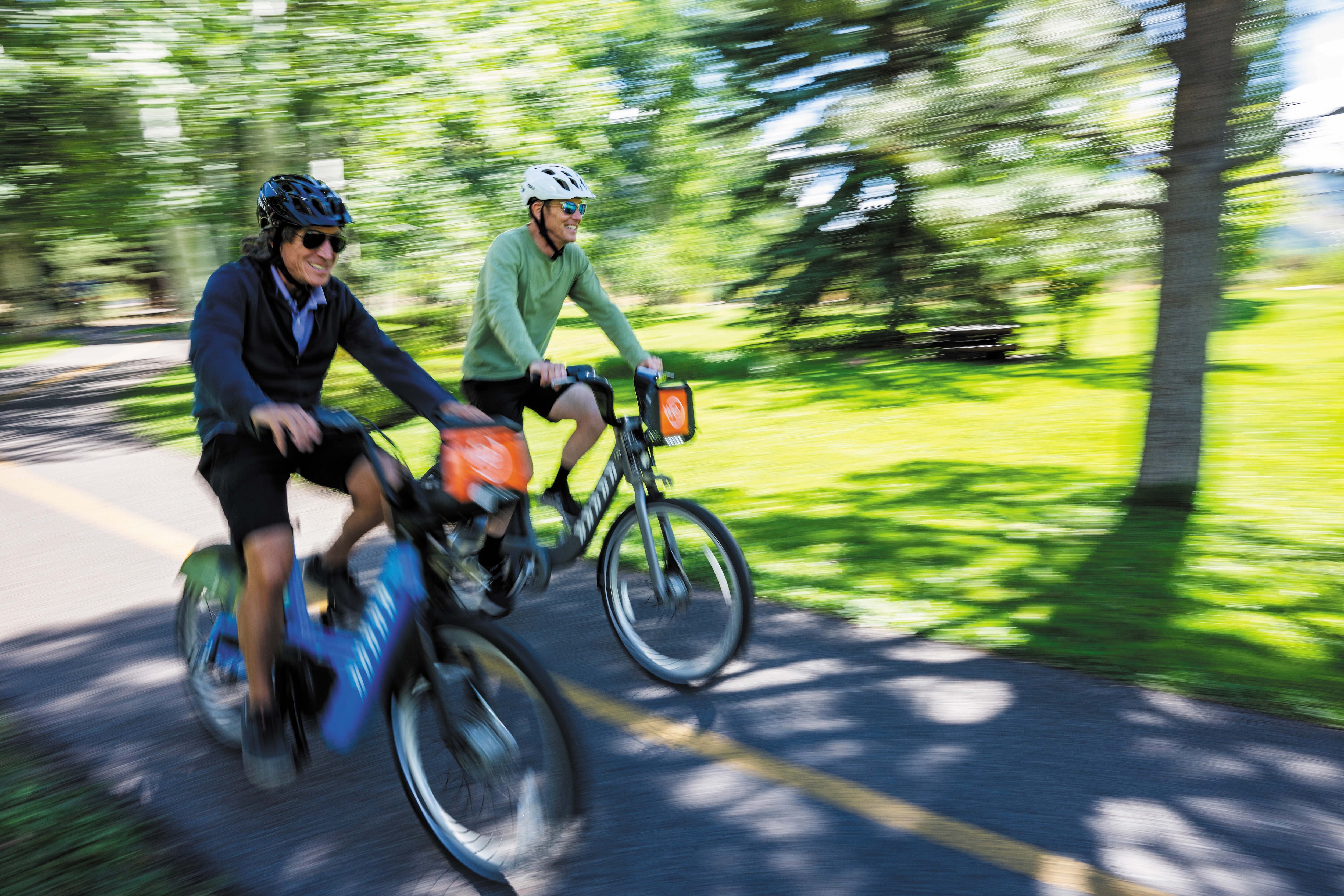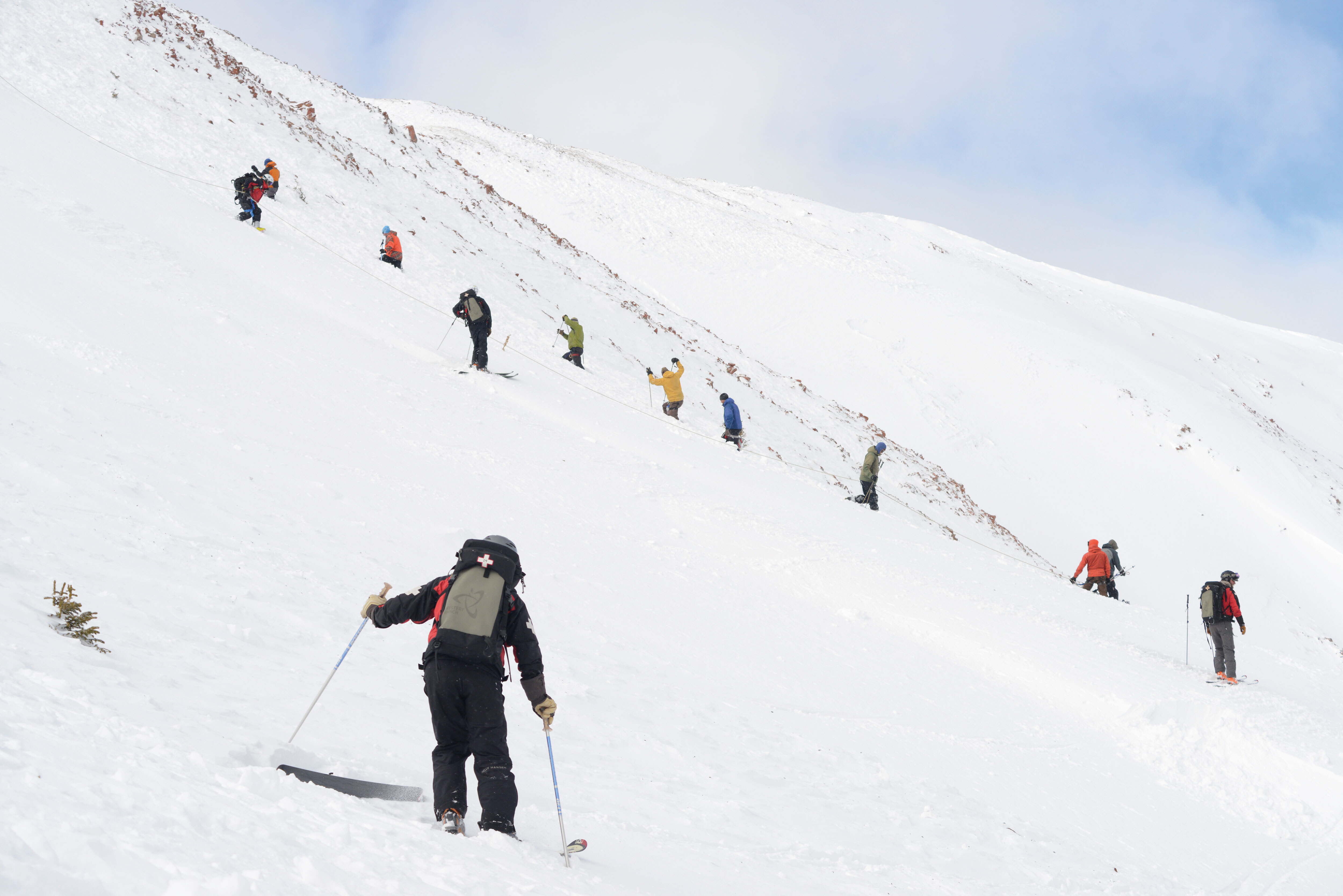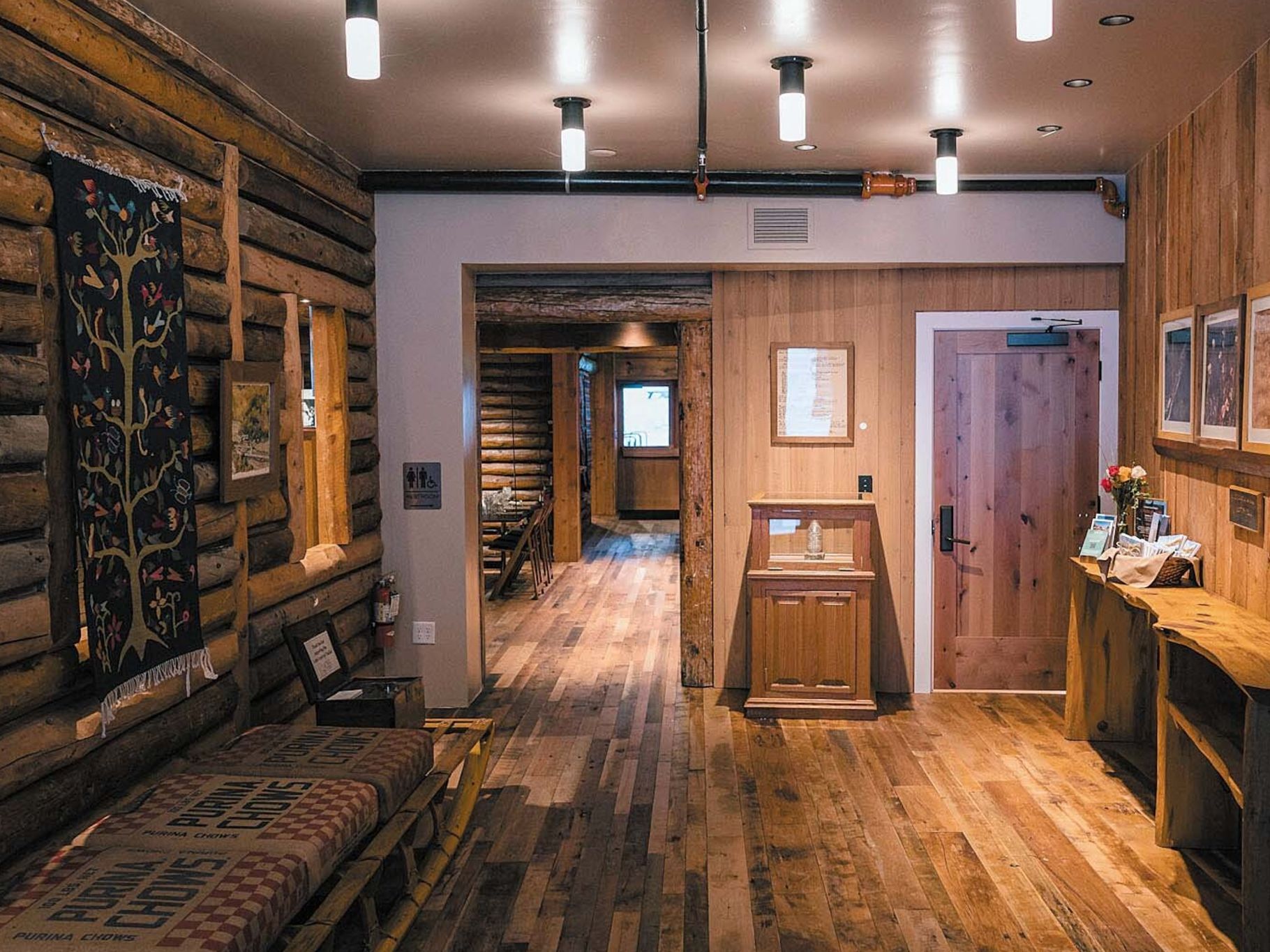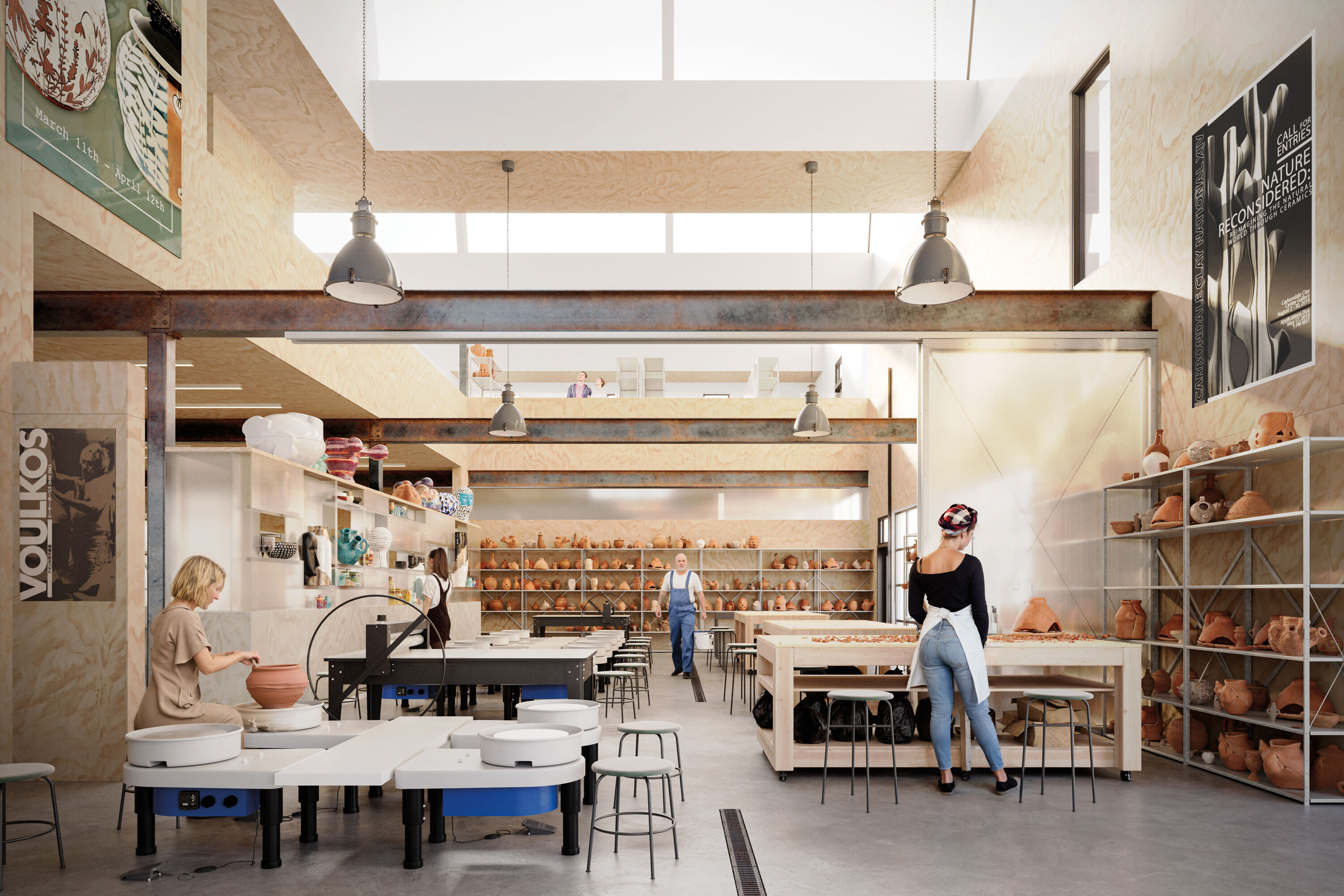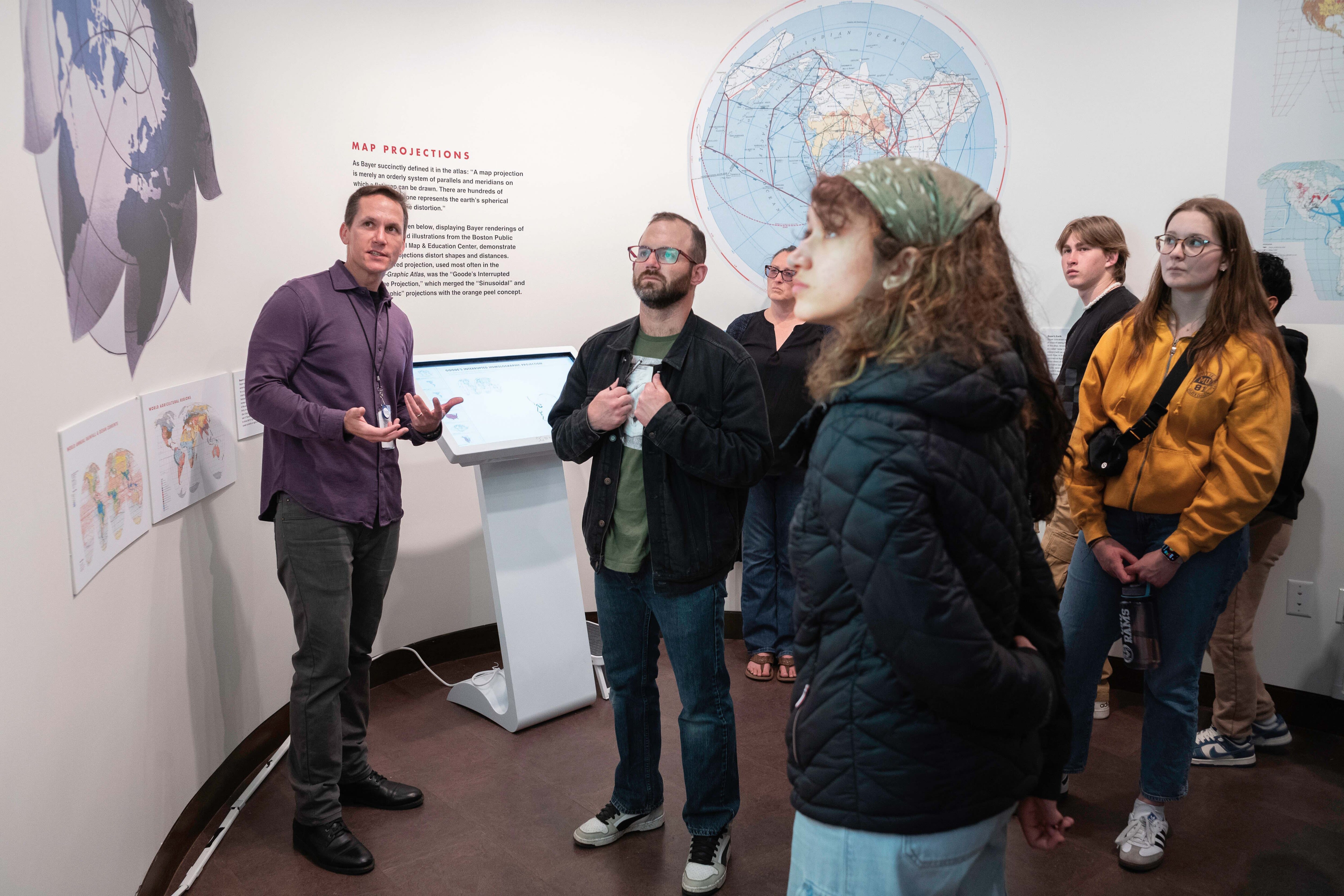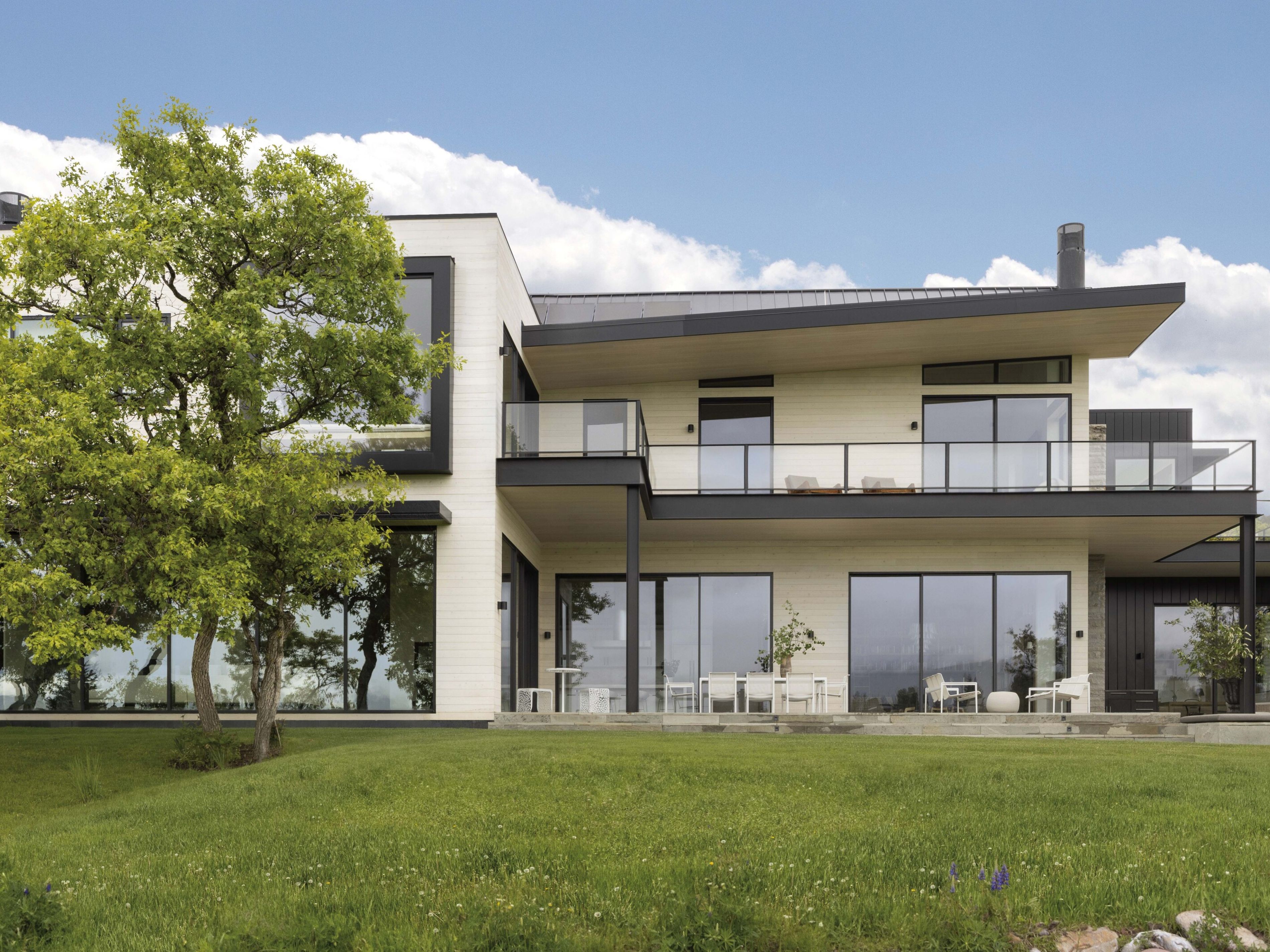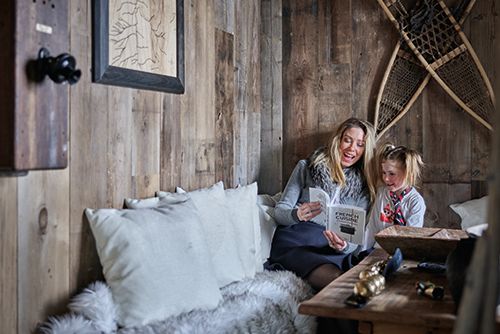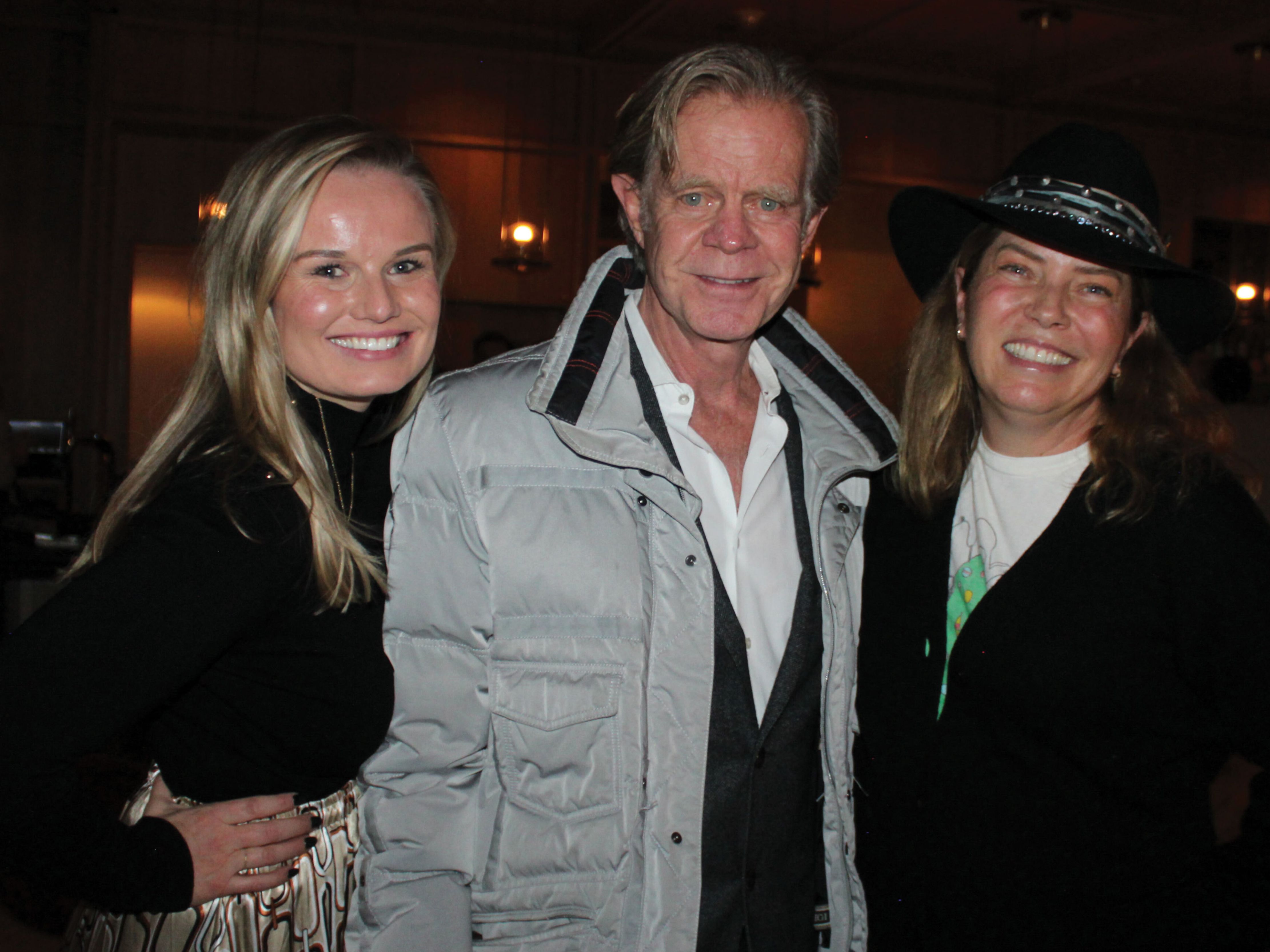Sojourner Salutes: Mirte Mallory
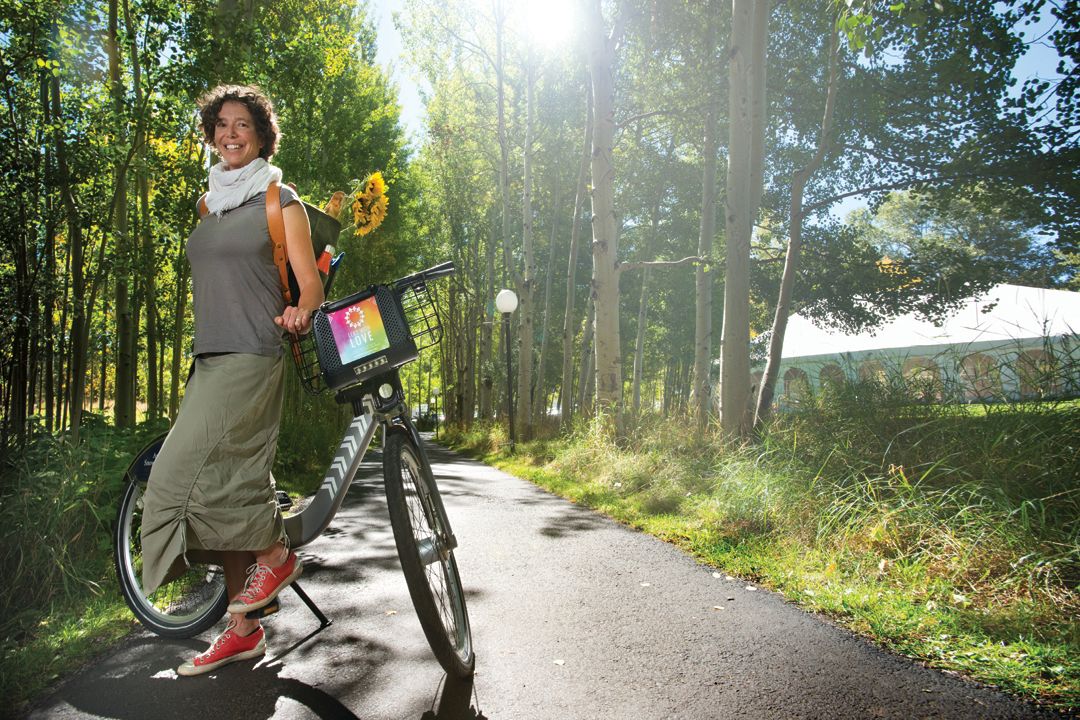
Mirte Mallory on the Aspen Institute campus.
Image: Karl Wolfgang
Once a year, Aspen Sojourner recognizes three individuals or couples who have done much to enrich lives locally. Choosing them often occasions lively debate in our office, but, ultimately, we always agree on a trio we feel fortunate to honor. Our salutees this year: a bike-share entrepreneur who also curates her renowned grandfather’s photos, a couple who founded a nonprofit to help ease the financial burden for locals with cancer, and the leader who transformed the Aspen Institute into a multifacted, community-serving entity.
According to an article in Reader’s Digest Deutschland, the first bike-share system began in Germany in 1965. It’s also where legendary Hungarian-born photographer Ferenc Berko met his wife, Mirte, and lived before the couple ultimately landed in Aspen in 1949. And now, tying together place and family, the Berkos’ granddaughter Mirte Mallory heads up WE-cycle, the US’s first-ever resort community bike share, which she founded in 2010; she also oversees and promotes the Ferenc Berko archives.
A third-generation Aspenite, Mallory grew up in the West End Victorian home that belonged to her grandparents. Soon, with husband (and WE-cycle co-founder) Philip Jeffreys and their seven-month-old son, Theo, Mallory will move back to the property, sharing with her parents a duplex created by renovating and adding on to Berko’s photography studio. Working alongside her mother, Mallory will continue carrying on the legacy of Berko’s abstract, observational art—much of it composed during his tenure as official photographer for the Aspen Institute and the Aspen Music Festival and School.
Says Mallory, “My grandparents helped entrench me in the artistic and intellectual fabric of this community, and I want to be sensitive to preserving the post-’50s era and what that introduced in terms of changing the character of Aspen.”
After graduating from Dartmouth, Mallory returned home in 2008 and began serving on the Pitkin County Planning and Zoning Commission, transitioning earlier this year from a six-year stint as board chair. That tenure reflects another family tradition: public service. Her parents, she says, “mentored me about the value of civic engagement and emphasized that we recognize living here is a privilege, not a right.”
Motivation for WE-cycle came from Mallory’s observations while living in France. “Seeing Parisians dressed to the nines using bikes as a main mode of transportation—that introduction made me realize that bikes don’t just have to be about spandex and sweat—they can be about mobility,” she says.
WE-cycle bikes were on the ground by 2013. Now with 43 stations in Aspen and Basalt open from May through October, the program helps reduce carbon emissions and traffic congestion.
One critical partner is the Roaring Fork Transportation Authority (RFTA), which provided $40,000 for one of WE-cycle’s first stations, at Rubey Park, and now offers an integrated pass to facilitate valley-wide commutes. “I was a bit skeptical about the viability of a bike-sharing program in the region,” admits RFTA Chief Executive Officer Dan Blankenship. “However, Mirte’s made a believer out of me. She’s demonstrated that WE-cycle can be an effective first- and last-mile link in someone’s daily commute.”
With expansion to Carbondale, Glenwood Springs, and New Castle in the works, Mallory adds, “RFTA does an extraordinary job of reaching underserved communities, but there are challenges with fixed-route transit. Bike share enables us to feed more people into the system.”
Thanks to the addition of midvalley stations in 2016 and a grant from the Better Bike Share Partnership to help engage Latino communities, Mallory is getting closer to her goal of reducing entrance barriers. “I talk to residents who either cannot get to work because the bus doesn’t stop near their homes or they simply don’t have a mode of transportation,” she says. “Hearing the enthusiasm of people who haven’t been on a bike since childhood when they tell me ‘I feel like I’m a kid again’ or ‘I feel like you’ve given me freedom’ is how I know we’re doing something really good.”
